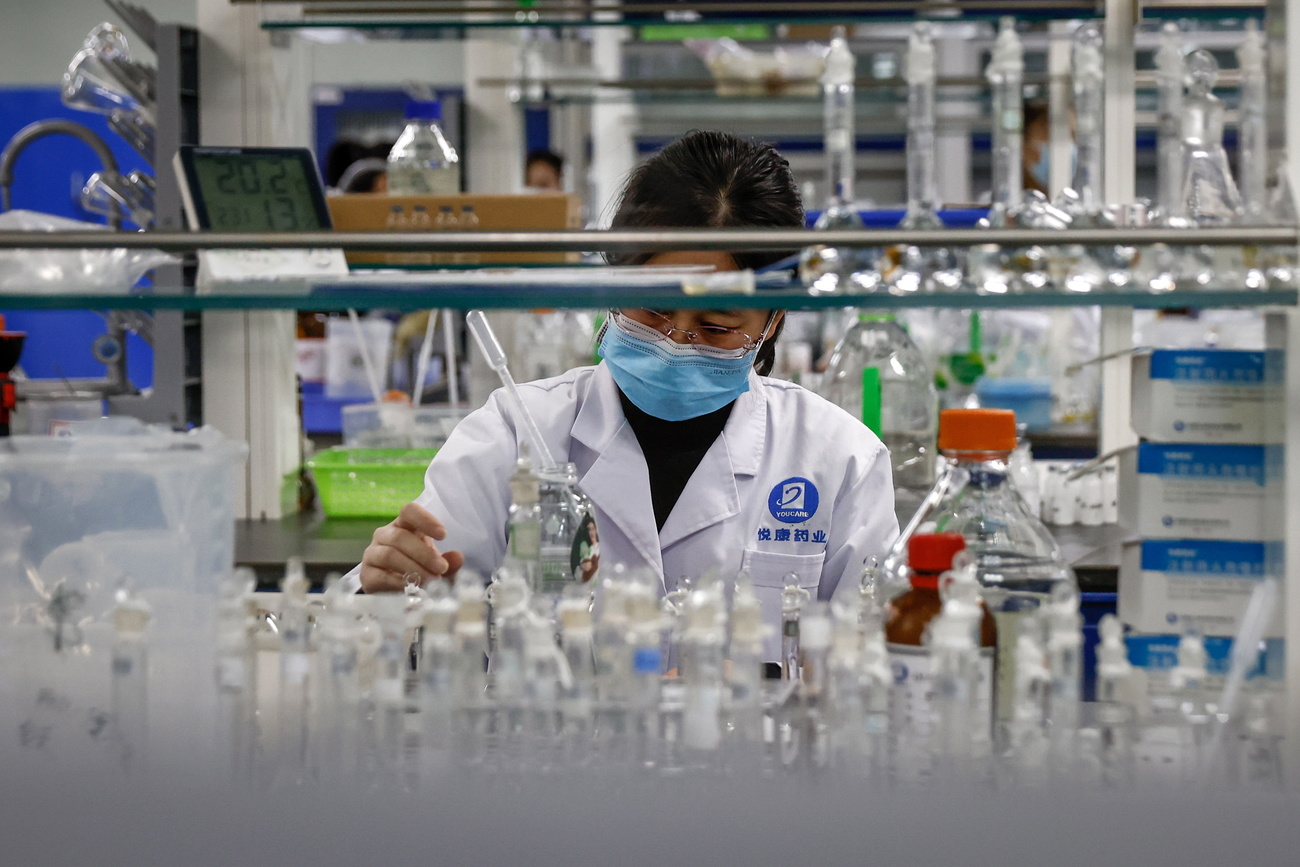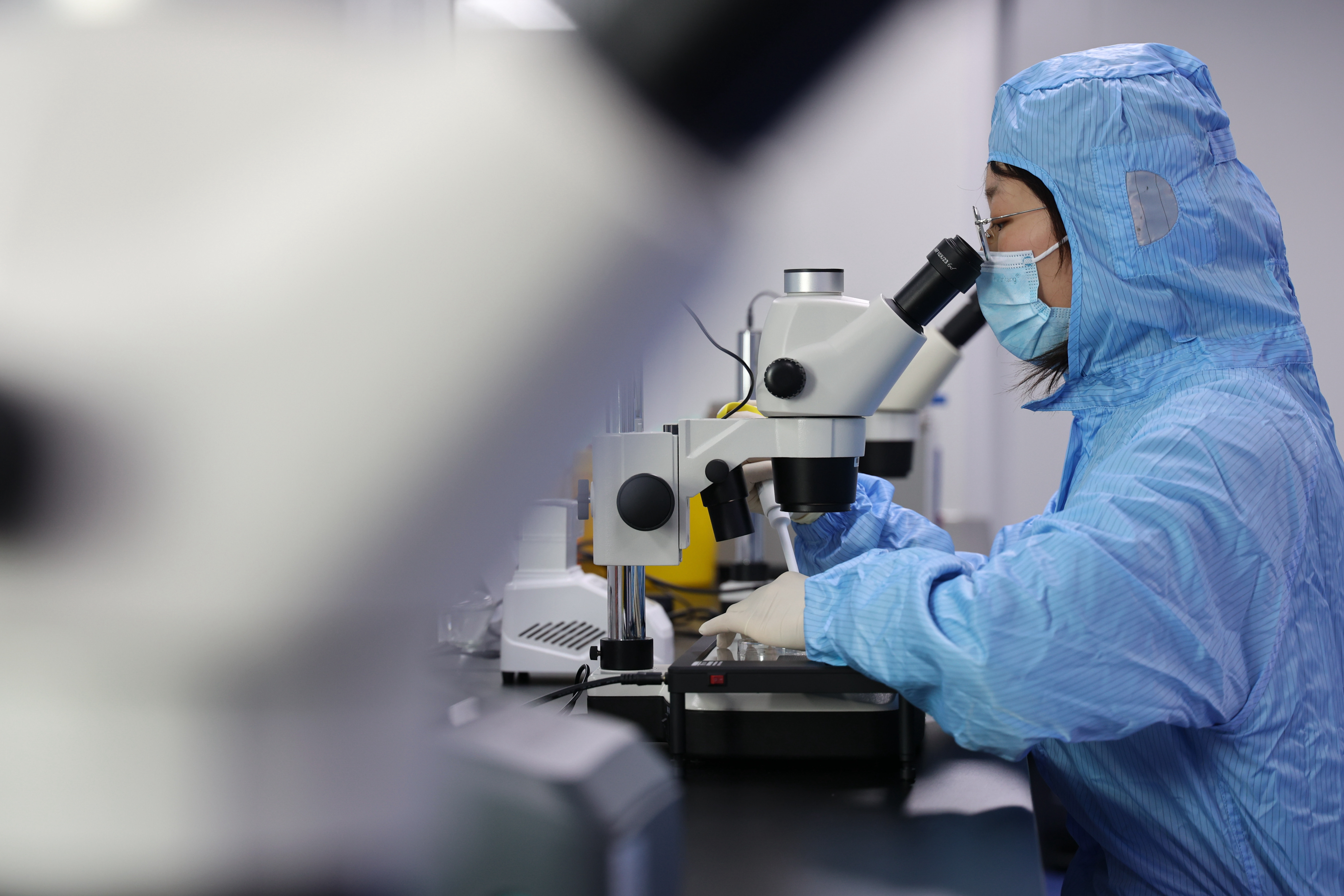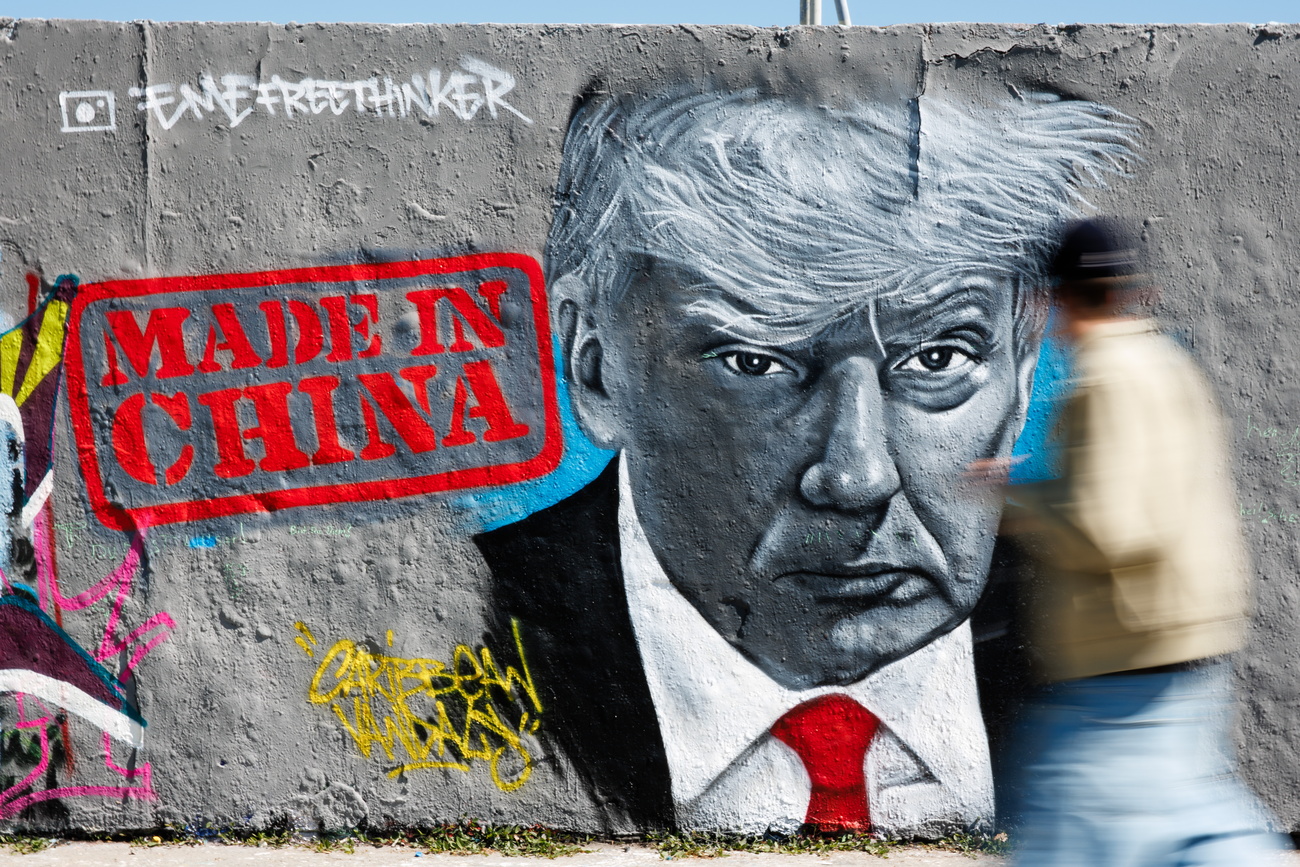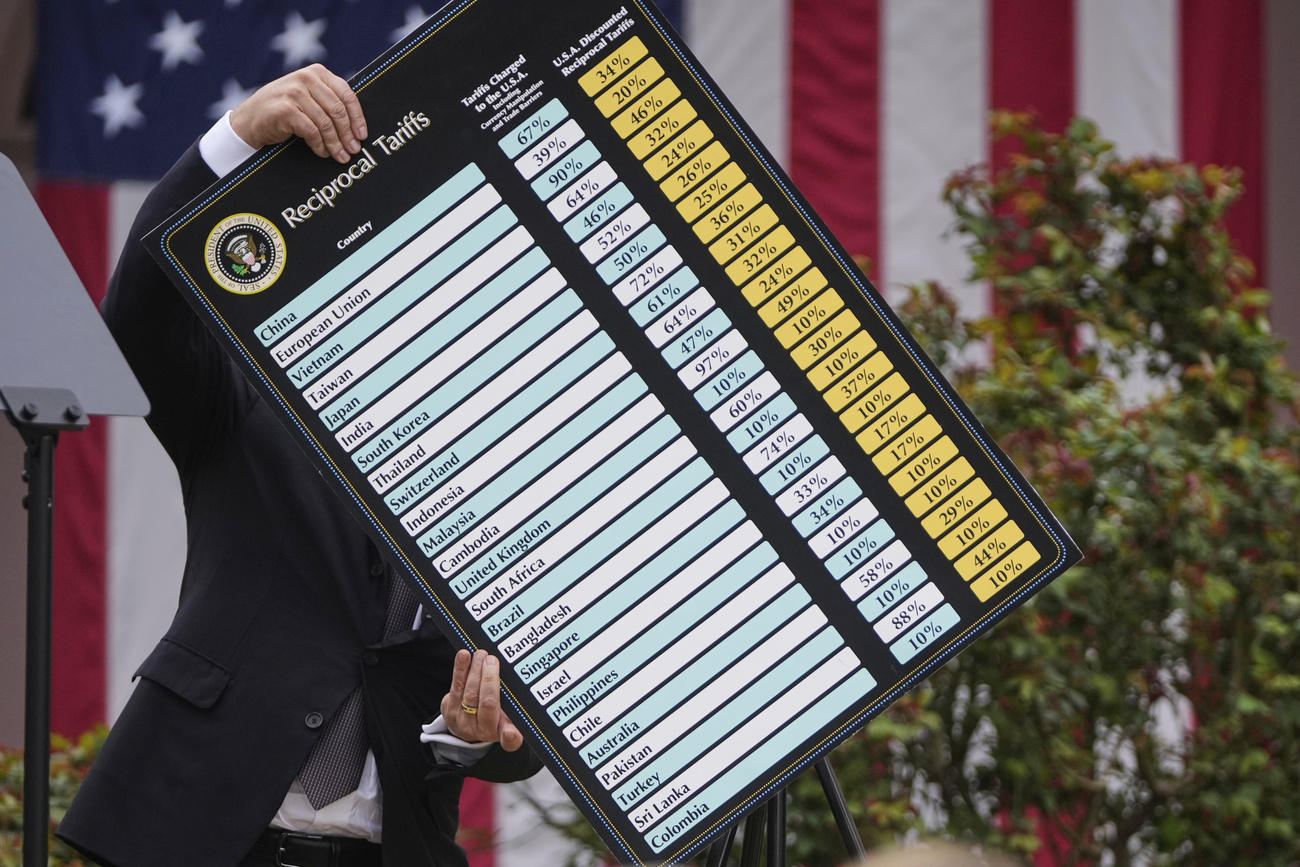
Chinese biotechs eye Swiss collaboration as relations with US sour

With growing uncertainty in US financial markets and research funding, Chinese companies are swooping in to present themselves as stable, open partners to the Swiss biotech sector.
At a time of trade wars and geopolitical tensions, a conference under the theme “international collaboration” seems like something from a bygone era. But that was indeed the tagline of the Swiss Biotech Day annual conference, which took place from May 5-6 in Basel, and was the largest on record with 3,000 participants – around 45% of whom came from abroad.
As a small country, Switzerland relies heavily on foreign partners for research and economic growth. This is even more the case for biotech companies that are often small and looking for partners for capital and expertise to develop and bring new drugs to market – a process that typically takes 10-15 years.
But stock market volatility, cuts to biomedical research funding and potential tariffs on pharmaceuticals are creating uncertainty around partnerships in the US, which has long been the go-to place for collaboration.
“Private biotech clinics are on a quest to develop products for 10-15 years,” said Michael Altorfer, CEO of the Swiss Biotech Association, at a media conference. “What we are talking about now [referring to geopolitical tensions] is short term. In three or six months, it may look different again.”
But until then, the uncertainty in the US is creating an opening for China, which is eager to establish itself as a major partner with European biotechs. The number of Chinese delegates at the Swiss Biotech Day has steadily increased. There were at least 20 Chinese companies in attendance or sponsoring including WuXi AppTec, a major Chinese drug developer and manufacturer, and XtalPi, a Chinese company pioneering AI for early drug development.
“China really wants to explore more long term and mutual trust cooperation with Switzerland and Europe,” said Minyue Dong, a professor in Switzerland who led a roundtable discussion on China-Swiss collaboration at the Swiss Biotech Day. “There is a shift in focus from the US to Europe.”
Mutually beneficial
China’s growing presence at the Swiss Biotech Day reflects the major inroads the country has made in the biotech sector. They are now the largest developers of major classes of drugs such as antibody drug conjugates, used to treat cancer, and are a key player in cell and gene therapies. Chinese companies are also rapidly advancing artificial intelligence to speed up drug development.
“Chinese companies are no longer just copying other’s innovation but really developing their own innovation,” said Stella Gu, from the Zug-based subsidiary of Chinese clinical trials company Tigermed, which has 10,000 employees in dozens of countries.

More
Big pharma’s growing China ties under threat from US crackdown
This was recently echoed by Novartis CEO Vas Narasimhan who toldExternal link the Financial Times in May that the level of innovation in China was a “wake-up call” for the company and the industry to hunt for new drug candidates and technologies in the country, rather than seeing it as a place for “fast follower” developments.
Novartis is building a $100 million factory for its advanced radioligand cancer therapy in China and has signed several deals with Chinese biotechs in the last two years. In January, Roche signed a deal worth up to $1 billion with Innovent Biologics, a drug developer and manufacturer based in Suzhou, China for the rights to develop and sell a drug candidate in early trials.
The country has also built up a vast network of sites for clinical trials – one of the most expensive parts of drug development. Various experts told SWI that conducting trials in China not only costs less than in many other countries but also opens doors to the Chinese market.
“Once you bring a medicine to China through a trial, you already start working with doctors who could prescribe your drug in the future,” said Gu.
These factors are making it harder for many Swiss biotechs to ignore China. When WuXi presented its technology at the Swiss Biotech Day a few years ago, there were very few attendees, said Dong. This year, a session the company hosted on antibody drug conjugates was packed.
Emmanuel Savioz, the CEO and founder of Lausanne-based biotech Tigen, recently spent time in China meeting potential partners for the development of next generation cell therapies, which use the patient’s own reinforced T-cells to recognise and destroy tumor cells.
“China is very fast at bringing new science to clinical trials,” said Savioz. “Historically the US has been easier to partner with but now China is developing at unprecedented speed and scale, especially in the area of cell therapy.”

More
China–US tariff talks place Swiss diplomacy on centre stage
A partnership in China is also interesting to Tigen investors, that are keen to diversify sources of innovation. “They would like us to partner with additional academic centres and in other regions,” said Savioz. The company already has a partnership with Memorial Sloan-Kettering in New York for a phase 1 cell therapy candidate but is actively looking for more partners.
Trust and other challenges
Working with Chinese companies comes with challenges though. Savioz said that it can take more time to build trust with partners than with European peers. It also isn’t clear if regulatory authorities in the US and Europe will accept trial data from China.
The US could also decide to move forward with the BIOSECURE Act, a bill proposed last may which would restrict federal funding and procurement from certain Chinese biotechnology companies.
The Chinese law on data protection is also a concern for Swiss researchers as it would allow Chinese authorities to access, use and modify data without the applicants’ consent and for any purpose. This led the Swiss National Science Foundation (SNF) to postpone a call for joint research projects with their Chinese counterpart that had been planned for 2023.

More
US and China to hold tariff talks in Switzerland
“China is a very important partner but we don’t want to put security and knowledge of our researchers under threat,” said Laure Ognois, who heads international collaboration at the SNF.
As trade and business with the US sours, China is looking to bolster relations with Europe, and Switzerland is a key target. Several leaders from the Chinese Community Party have visitedExternal link Europe since US President Trump announced “Liberation Day” tariffs on countries on April 2.
“Switzerland has an advantage – it’s neutrality,” said Gu. “This isn’t just a geopolitical stance, it is a strategic asset as you can see by the recent news,” referring to the announcement on May 7 that Geneva will play host to high-level trade talks between the US and China. “This demonstrates that we are in the right place,” said Gu.
Edited by Virginie Mangin/ac
Correction: This article has been updated to note that WuXi AppTec was a sponsor of the Swiss Biotech Day, not WuXi Group.

In compliance with the JTI standards
More: SWI swissinfo.ch certified by the Journalism Trust Initiative































You can find an overview of ongoing debates with our journalists here . Please join us!
If you want to start a conversation about a topic raised in this article or want to report factual errors, email us at english@swissinfo.ch.